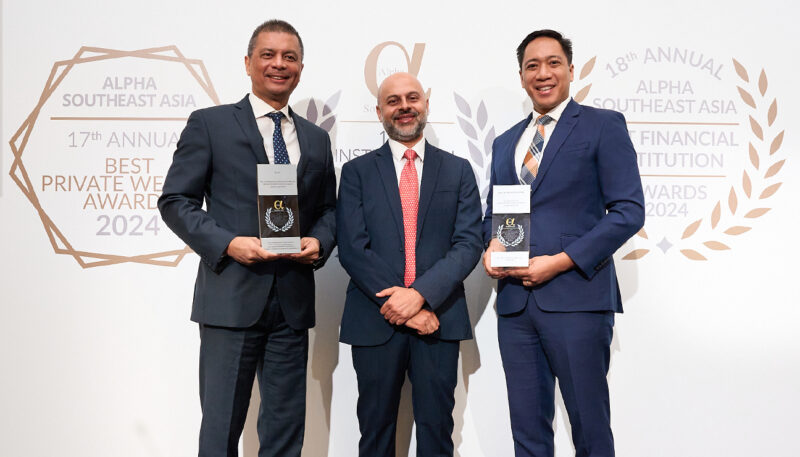-
The ATA Carnet System was officially launched in the Philippines on July 15 at the Manila Hotel
-
At the launch, Customs commissioner Bienvenido Rubio signed the customs memorandum order implementing the ATA Carnet System
-
The Bureau of Customs noted that the Philippines is the 81st country to implement the ATA Carnet system
-
The system officially known as the Convention on Temporary Admission (Istanbul Convention), is seen to enhance trade efficiency and strengthen the country’s position in the global marketplace
The ATA Carnet System was officially launched in the Philippines on July 15 at the Manila Hotel.
At the launch presided over by the Bureau of Customs (BOC) and Philippine Chamber of Commerce and Industry (PCCI), Customs commissioner Bienvenido Rubio signed the customs memorandum order implementing the ATA Carnet System.
The CMO, a copy of which has yet to be published, implements BOC Customs Administrative Order (CAO) No. 02-2022, later amended by CAO 01-2023, to provide the rules and regulations in implementing the ATA Carnet System in the Philippines.
READ: BOC revises rules on ATA Carnet System
The ATA Carnet System is an international scheme that allows the temporary admission and tax-free and duty-free importation of commercial samples, professional equipment, and articles for presentation or use in trade fairs, shows, and exhibitions.
The ATA Carnet, sometimes referred to as the “passport for goods,” is a single document that will pass through several customs territories and will be valid up to one year. ATA is an acronym of the French and English words “admission temporaire/temporary admission,” while carnets are referred to as “passports for goods” or “merchandise passports”.
Philippine businesses attending trade fairs and exhibitions in territories that are parties to the Convention are among those that are expected to benefit from the Convention.
Trade Secretary Alfredo Pascual recognized the system not as just a facilitative tool but as a gateway to greater opportunities and streamlined international trade. “Imagine the possibilities: our exporters can now bring their goods to a place for exhibition and promotion and avoid various countries’ complex and often cumbersome customs requirements. Instead, with a single document—the so-called “passport for goods, our exporters can ensure their goods move swiftly and efficiently across borders,” the trade chief said in a statement.
By significantly reducing the financial burden on businesses, the streamlined process will expedite the movement of goods across borders and make participation in international trade shows, exhibitions, and other events more accessible and cost-effective, the Department of Trade and Industry said.
The system’s implementation further solidifies the country’s efforts toward an export-led growth, aligned with the Philippine Export Development Plan, DTI added.
Beyond advantages in international trade, the ATA Carnet System will make the Philippines a more attractive destination for international events and exhibitions. This, in turn, is expected to stimulate tourism, create jobs, and contribute to the overall economic development of the country, DTI said.
For its part, BOC noted the Philippines is the 81st country to implement the ATA Carnet system, which is seen to enhance trade efficiency and strengthen the country’s position in the global marketplace.
in a statement, the agency said the introduction of ATA Carnet system is expected to yield numerous benefits, including increased participation in international fairs and exhibitions, greater ease for professionals traveling with equipment, and a significant reduction in the administrative burden associated with temporary imports.
The ATA Carnet system will be managed by PCCI as the National Issuing and Guaranteeing Association (NIGA). Its appointment was endorsed by the Department of Finance through the BOC. The NIGA is the association affiliated to a Guaranteeing Chain and accredited by BOC to issue Temporary Admission Papers (TAP) and to guarantee the amount of security and other charges to be imposed. Only one NIGA is appointed by BOC.
READ: PCCI now accepting ATA Carnet accreditation
TAPs, meanwhile, are international customs document accepted as a customs declaration which makes it possible to identify goods and which incorporates an internationally valid guarantee to cover import duties and taxes.
PCCI executive vice president Ferdinand Ferrer in a presentation during the launch said ATA Carnet is a welcome tool for business to easily access and show their products to new markets.
Beneficiaries include fair exhibitors, traveling business/sales executives, technicians, professional individuals and teams such as, among others, photographers, film crew, journalists, surgeons, architects, artists, engineers, educationalists, entertainers, and freight forwarders.
Goods covered include commercial samples, professional equipment, and items for display or use at international trade exhibitions, trade shows, or similar events. Goods that are not covered include consumable/perishable/disposable items, items intended to be given away, alcoholic beverages, tobacco, and fuel; items intended for processing or repair, items already sold or offered for sale, unmounted gems or gemstones.
PCCI last May started accepting accreditation applications from businesses who intend to utilize the passport for goods.









